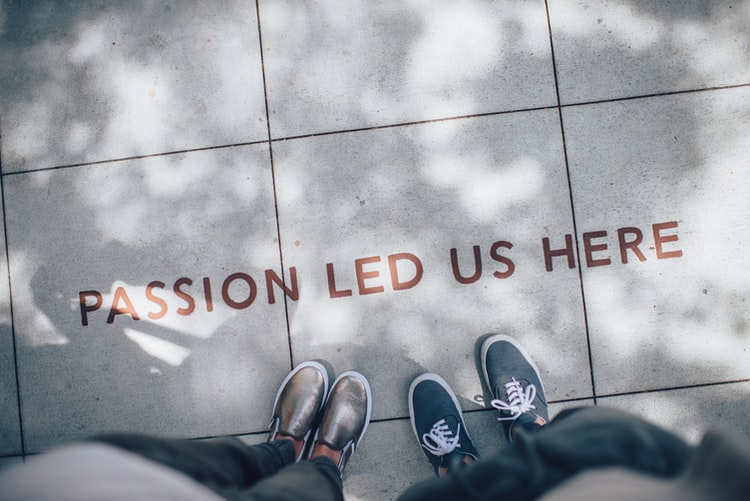I’ve been working a little more slowly lately, as I try to process the mountain of information that is the Alchemy synth on Logic Pro X. I figured I would start with a trial run of that DAW, since it’s closest to Garageband in it’s UI. It’s still like drinking from a waterfall though.
Fortunately, that doesn’t scare me as much as it used to.
In my last business, I made the mistake of working too hard. I wanted to be turning profits now, or preferably months ago. I loved the idea of traveling the world, living off passive income generated by my wildly-successful online courses.
What happened was I became exhausted and burned out.
It taught me an important lesson, one that runs contrary to the words of motivational coaches, successful CEOs, movie stars, heavy-weight champions, and others.
I’ve listened to dozens of YouTube videos playing famous speeches of these people, usually with a backdrop of epic motivational music. These great leaders of men and industry had much to say, but one piece of advice never changed: You have to work your butt off, every day.
At some point, it ceased to become motivating and started to become discouraging.
Because hard work is, well, hard. And it’s exhausting. And you have people talking about getting up at three in the morning to work on their dream, the importance of working relentlessly, even at the expense of your personal life.
Speaking of working relentlessly, taking breaks is often discouraged at best. After all, if you take time for yourself, someone else who “worked harder, and “wanted it more” will eat your lunch.
Coach Eric Thomas talks about the necessity of having “a sense of urgency” in working on your dream. Arnold Schwarzenegger once said, “when you are out partying, horsing around, someone else out there at the same time is working hard, someone is getting smarter and someone is winning. Just remember that.”

The picture created here is of a world-wide race, with everyone striving desperately to be the first to the finish line. I suppose that works for certain competitive-minded people, but for me, it sounds depressing, neurotic, and out of balance with life.
So here it is: I believe the key to accomplishing great things is not the ability to work hard, although of course that helps – it’s patience.
Real talk: Mastery, or even progressing to the point where we can earn some money off it, will take time, and lots of it. Keeners may jump onboard with the promise that they “just have to work hard”, but the months and years have a way of grinding down that kind of determination.
A lot more people would balk at their dreams if they recognized they would be sacrificing 10-15 years of their life to them… Or maybe they would simply have a more honest picture of what was required.
In the struggle between the stone and water, in time, the water wins.
Japanese Proverb
As my wife puts it, you’re going to be that old anyway, right?
See, I’m okay with working a little less for a while, as long as I keep working. My body needs breaks. It needs times where I simply lose myself in the music, instead of analyzing it under a microscope. I need to stay connected to why I love doing this, because that’s the fuel that pushes me forward.
It’s hard to love something when it takes up the vast majority of your time. It’s even worse when you are working under a “sense of urgency”, rather than enjoying the process.
In fact, I can attribute my failure of my online business, more than any other factor, to impatience. Buoyed by the promise of gung-ho speakers, I launched my site too early and took on far too much responsibility than I could manage and still grow the business.
On the other hand, if I had taken my time and planned more carefully – well, who knows? But I learned you can’t make things happen before they’re ready to.
The silver lining with this approach is you don’t have to work hard, or at least not as brutally hard as many make it seem. And you will probably have a lot more fun along the way.

Taking your time allows more room for curiosity and exploration, which can broaden and deepen your understanding. You have more time to get in touch with what approaches work for your learning style, and to identify any sabotaging hangups.
It’s also a very humbling experience. My 10,000 hours chart serves as a constant reminder that, as far as I’ve come, I’ve still barely left the starting line in the larger scope of things. This helps me avoid the Dunning-Kruger effect of thinking I know more – or should know more – than I do.
As the popular quote goes: ‘Don’t let the destination get in the way of the journey’. The journey is 99% of the whole thing, so let’s focus on that, and not worry about when we will “make it”. Perhaps if we did, a lot more of us would – make it, that is.
Credits:
‘Two Person Standing on Gray Tile Paving Photo’ by Ian Schneider from Unsplash
‘Woman Sitting on Chair While Leaning on Laptop’ by Andrea Piacquadio from Pexels
